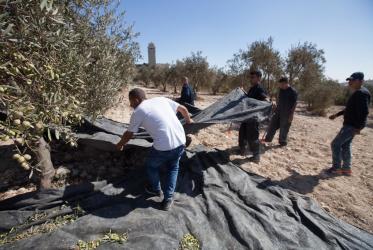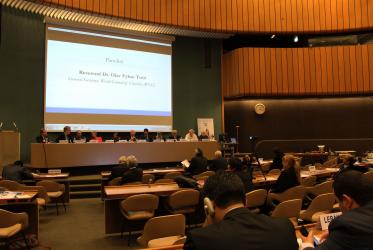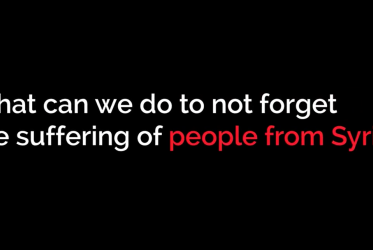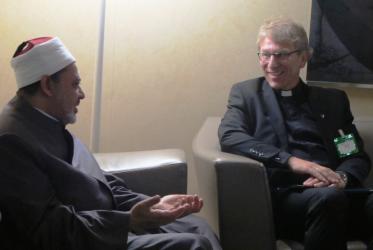Displaying 61 - 80 of 120
Christians in China warmly receive WCC delegation
12 January 2018
WCC delegation visits China
04 January 2018
Trying to do good for the world
18 December 2017
May we remember them well, with dignity and respect
14 December 2017
Peacemaking “a great and compelling life task”
09 December 2017
Prayers for peace - Ecumenical service at Trinity Church, Oslo, Norway
09 December 2017
Trinity Church, Oslo, Norway
Holy Land tourism goes beyond traditional paths
05 October 2017
WCC students study what makes a peace communicator
18 July 2017
A voice for peace from Down Under
10 July 2017
Islam and Christianity: finding the common ground
16 March 2017
WCC Blue Community implements water changes in the Ecumenical Centre
16 February 2017
Dialogue flourishes between WCC, Muslim Council of Elders
30 September 2016















